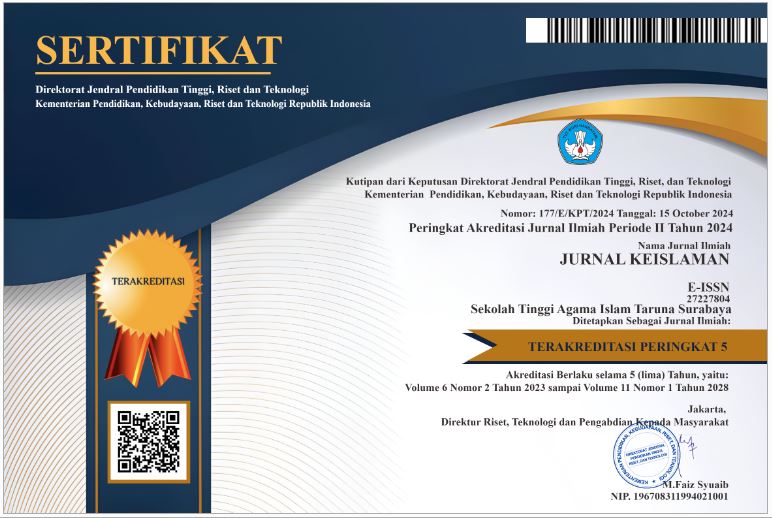Peranan Filsafat Pendidikan dalam Pemecahan Problematika Pendidikan Islam
DOI:
https://doi.org/10.54298/jk.v8i2.547Keywords:
philosophy of education, educational issues, values, transformation, Islamic educationAbstract
Abstract
Educational philosophy plays a crucial role in addressing complex and multidimensional educational issues. Educational problems such as moral degradation, identity crises, and irrelevant learning systems require in-depth consideration of the values, goals, and direction of education. Educational philosophy serves as a normative and critical foundation for building a humanistic and transformative education system. This paper aims to explore the contribution of educational philosophy to analyzing and providing solutions to educational problems in Indonesia. The method used is a literature review with a reflective qualitative approach. The results of this study indicate that the application of educational philosophy can strengthen the direction, values, and meaning of Islamic education policies and practices.
Downloads
References
Al-Ghazali. Ihya’ Ulumuddin. Beirut: Dar al-Fikr, 2005.
Arikunto, Suharsimi, 2002, Prosedur Penelitian (Suatu Pendekatan Praktek) Edisi Revisi V, (Jakarta: Rhineka Cipta)
Ministry of Education and Culture of Indonesia. (2003). Undang-Undang Nomor 20 Tahun 2003 tentang Sistem Pendidikan Nasional.
Muhaimin. Paradigma Pendidikan Islam. Jakarta: Kencana, 2012.
Nata, Abuddin. Filsafat Pendidikan Islam. Jakarta: Logos, 2001.
Sugiyono, Sugiyono, 2022. Metode Penelitian Kuantitatif, kualitatif, dan R&D. (Bandung: Alfabeta)
Sutadji, Eddy. "Pembaruan Pendidikan dalam Perspektif Filsafat." Jurnal Filsafat, Vol. 24, No. 2, 2014.
Tilaar, H.A.R. Perubahan Sosial dan Pendidikan. Jakarta: Grasindo, 2002
Zuhairini, et al. Filsafat Pendidikan Islam. Jakarta: Bumi Aksara, 2015
Downloads
Published
How to Cite
Issue
Section
License
Copyright (c) 2025 Ihyaul Kholid, Akhmad Fadli

This work is licensed under a Creative Commons Attribution-ShareAlike 4.0 International License.
Authors who publish with this journal agree to the following terms:
- Authors retain copyright and grant the journal right of first publication with the work simultaneously licensed under a Creative Commons Attribution-ShareAlike 4.0 that allows others to share the work with an acknowledgement of the work's authorship and initial publication in this journal.
- Authors are able to enter into separate, additional contractual arrangements for the non-exclusive distribution of the journal's published version of the work (e.g., post it to an institutional repository or publish it in a book), with an acknowledgement of its initial publication in this journal.
- Authors are permitted and encouraged to post their work online (e.g., in institutional repositories or on their website) prior to and during the submission process, as it can lead to productive exchanges, as well as earlier and greater citation of published work (See The Effect of Open Access).


















